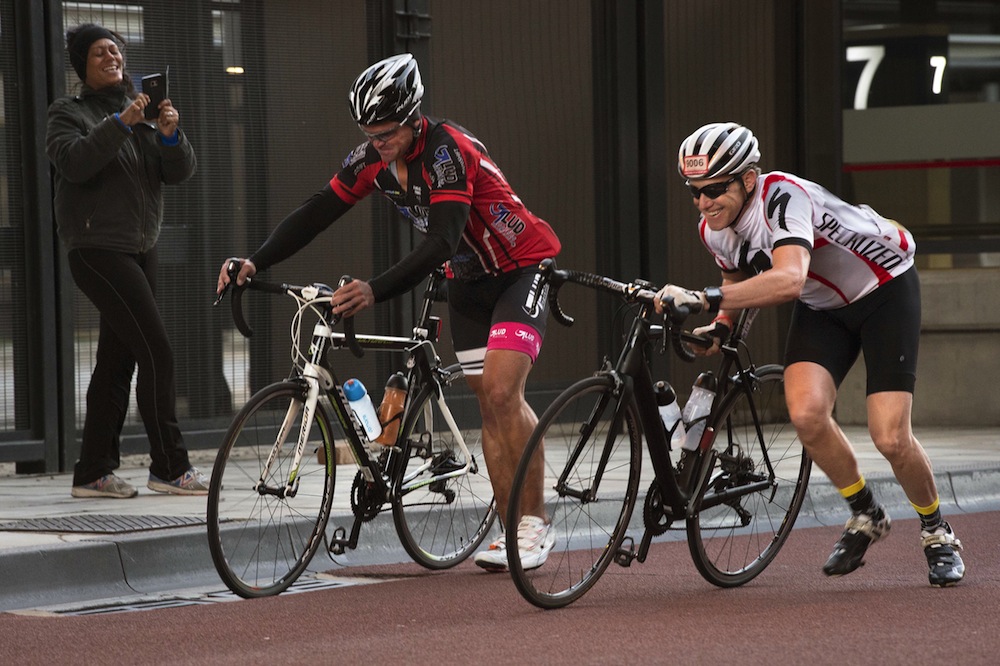Freak winds and deadly fires force cancellation of world’s biggest timed bike ride
100kmph winds blew riders off their bikes in the timed event in South Africa

Cyclists battle against strong winds at the start of the Argus Cape Town City Cycle Tour. (AFP PHOTO / RODGER BOSCH / Getty Images)
The latest race content, interviews, features, reviews and expert buying guides, direct to your inbox!
You are now subscribed
Your newsletter sign-up was successful
One hundred kilometre per hour winds that blew riders from their bikes and fanned a fire on the route, forced the cancellation of the ‘world’s largest timed cycle race’ in South Africa this morning.
>>> Watch: Riders battle 100kph winds in Dutch Headwind Championships
35,000 riders had been entered for the 40th edition of the Pick n Pay Cape Town Cycle Tour, including 1,290 British riders. But 23 minutes after the elite group had been set off at the front of the event at 6:15am, organisers announced the decision to call the event to a stop.
At least one rider in the elite category was stretchered to hospital after crashing in the early miles. Dozens of others are believed to have fallen and suffered minor injuries after gusts channelled between city skyscrapers made some sections of the route, and access to the start, impossible to ride.
Approximately 700 riders in top seeded groups had been allowed to start the event, although under instruction to walk one short urban section that tunnelled the wind under a bridge. But all these were stopped before the 15km point at Constantia and escorted back to the city.
Even riders who’d dismounted found themselves getting blown over or losing grip of their bikes.
As well as the safety of riders and officials on the event, fires that destroyed over 650 homes in informal settlements around the Hout Bay area compounded the decision to cancel.
The latest race content, interviews, features, reviews and expert buying guides, direct to your inbox!
At least nine people died in fires that ravaged the drought affected Cape Town area earlier in the week and event road closures threatened to impede emergency service access.
Protest action over a land issues near Glencairn had already forced organisers to shorten the route from 109km to 78km in the early hours of the morning.
“Our priority first and foremost will always be the safety of all our participants and the risk of injury and potential fatality at the start, at the finish and on Chapman’s Peak warranted this extremely difficult decision,” said David Bellairs of the Cape Town Cycle Tour Trust at a hastily assembled press conference this morning.
“Furthermore, we only made the decision after endeavouring to mitigate all risks to keep the event open.”
Although the Cape area is famously windy and the iconic event -formerly known as the Cape Argus- has previously been shortened, this is the first time since its inaugural edition in 1978 that the mass-participation ride around the spectacular coastal roads of the peninsular had been cancelled.
Although the organisation said they’d received some disgruntled comments, support on social media for their decision had been overwhelming.
With over 100 charities set to benefit from the event taking place, Bellairs noted that the organisation had been humbled by the outpouring of offers to assist and donate resources to those in need as a result of the event being stopped.
All food from the event's feed stations and hospitality zones was also set to be donated.
“We are in the process of co-ordinating efforts to ensure that goods reach those in need in the fire-affected areas in Hout Bay,” he added.